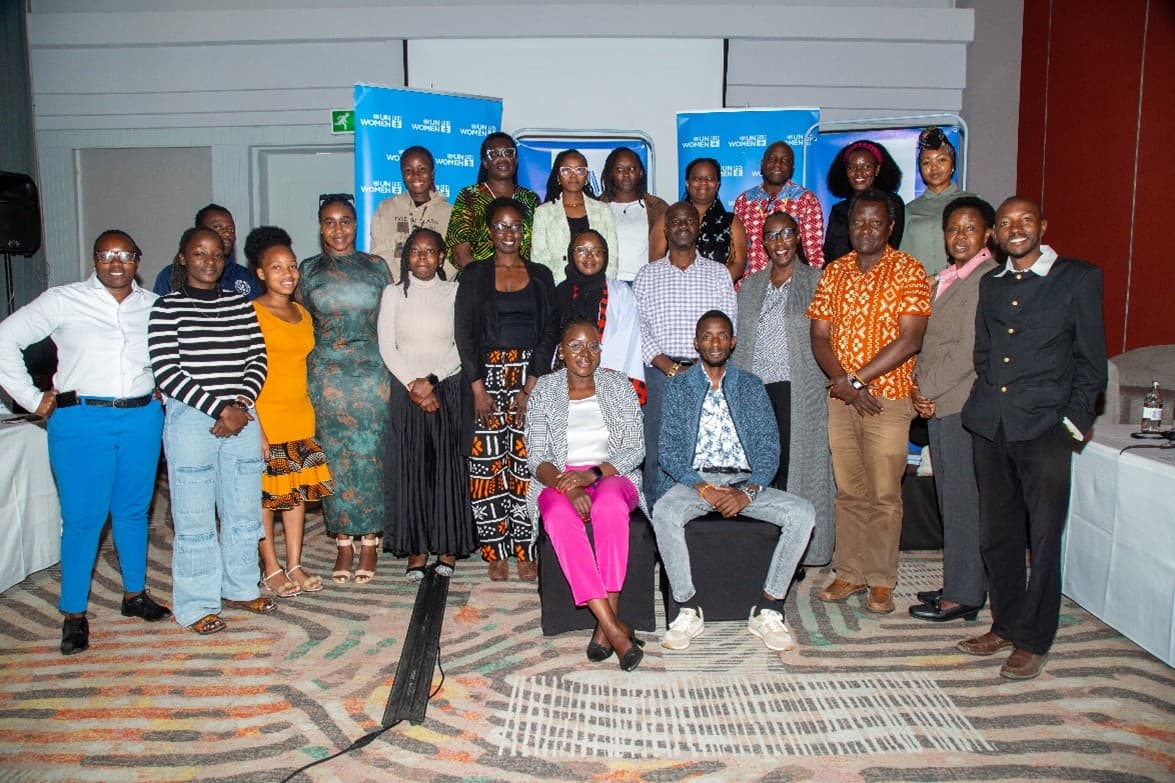We're loading the full news article for you. This includes the article content, images, author information, and related articles.
A new report reveals a staggering 69% prevalence of gender-based violence in Kenyan sports, a sharp increase that, alongside high-profile femicides, has forced a national reckoning and spurred new government action.

NAIROBI, Kenya – A crisis of gender-based violence (GBV) is sweeping through Kenyan sports, with a new study revealing a dramatic escalation in abuse targeting the nation's athletes. A June 2025 report by Aga Khan University's Graduate School of Media and Communications found that 69% of sportspeople in Kenya have either personally experienced or know someone who has experienced sexual or gender-based violence (SGBV). This marks a significant increase from 43% reported by a government task force in 2022, highlighting a worsening environment for athletes, particularly women.
The research, titled "Sexual and gender-based violence against women in sports: prevalence, impact, and interventions in East Africa," positions Kenya with the highest prevalence of SGBV in the region, ahead of Tanzania (62%) and Uganda (48%). The abuse is multifaceted, with verbal abuse being the most common form reported (43%), followed by emotional abuse and sexual harassment. The study underscores that the problem is systemic, reinforced by patriarchal norms, weak accountability structures, and a pervasive culture of silence within sports institutions.
The grim statistics are underscored by a series of tragic, high-profile deaths that have shaken the nation and the global athletics community. The brutal murder of Agnes Tirop, a 25-year-old world record holder, in her Iten home in October 2021, served as a brutal awakening. Her death, for which her partner was charged, exposed the hidden vulnerabilities of even the most successful female athletes. This was followed by other devastating losses, including the killing of Ugandan Olympian Rebecca Cheptegei, who was set on fire by a former partner in Kenya in September 2024. These femicides have become a rallying cry, forcing authorities and athletes alike to confront a long-ignored epidemic.
Perpetrators are often individuals in positions of power and trust. The Aga Khan University study identified coaches, team officials, and teammates as accounting for 55% of reported perpetrators in East Africa. Young, vulnerable athletes at the start of their careers are especially susceptible to exploitation. Beyond physical and sexual violence, financial exploitation is rampant, with athletes reporting that partners, coaches, and agents frequently seize their earnings. Many athletes suffer in silence, fearing retaliation, stigma, or the loss of their careers.
The public outcry following Tirop's death has catalyzed long-overdue institutional responses. In the wake of the tragedy, the government established a Committee on Gender Welfare and Equity in Sports. Building on this, in a gazette notice dated November 22, 2024, the Ministry of Youth Affairs, Creative Economy and Sports unveiled a new Gender Protection and Implementation Committee. Chaired by marathon legend Catherine Ndereba, the committee is tasked with fully implementing the 2022 taskforce report, developing new policies to curb GBV, and creating a framework for multi-agency collaboration.
Sports Cabinet Secretary Kipchumba Murkomen acknowledged the gravity of the issue, stating, "I hope you guys know this thing is very serious. I know it is a big problem... it is very emotional and very painful to even narrate their stories." The Ministry has pledged to create a toll-free number for anonymous reporting and to work with the judiciary and civil society to provide legal aid and life skills training for both male and female athletes.
Athletics Kenya (AK) has also initiated changes, conducting countrywide consultative meetings with stakeholders and redirecting resources towards awareness campaigns. Susan Kamau, AK's Chief Administrative Officer, described Tirop's death as a "rude awakening" that changed the landscape of the sport. In response to the crisis, athlete-led initiatives have also emerged, such as Tirop's Angels, an NGO founded to combat GBV, and the Nala Track Club, an all-female training camp established by marathoner Mary Ngugi to provide a safe environment for young runners.
Despite these positive steps, significant challenges remain. Experts point to a persistent lack of resources for investigating GBV cases and a legal system that can be slow to deliver justice, which discourages victims from coming forward. The National Gender and Equality Commission (NGEC) has launched campaigns in the North Rift to make safeguarding a standard practice in training camps, not an afterthought. The ultimate success of these new committees and initiatives will depend on sustained funding, rigorous implementation, and a fundamental cultural shift within the Kenyan sports ecosystem to ensure that athletes can pursue their dreams free from fear, exploitation, and violence. Further investigation is required to monitor the on-the-ground impact of these new policies.
Keep the conversation in one place—threads here stay linked to the story and in the forums.
Other hot threads
E-sports and Gaming Community in Kenya
Active 8 months ago
The Role of Technology in Modern Agriculture (AgriTech)
Active 8 months ago
Popular Recreational Activities Across Counties
Active 8 months ago
Investing in Youth Sports Development Programs
Active 8 months ago
Key figures and persons of interest featured in this article